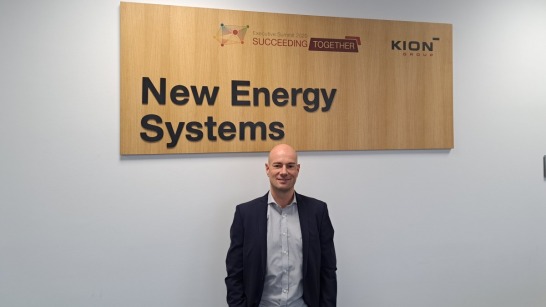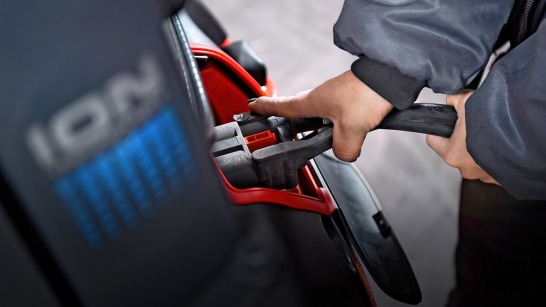Lithium-Ion Batteries: Highly Efficient Technology With Many Advantages
The advanced batteries offer many advantages, making them a more sustainable and more cost-efficient alternative drive system. The lithium-ion batteries have a much greater power density and level of efficiency compared to lead-acid batteries, for example. The batteries are not only smaller, but also help cut energy costs by up to 30% while offering the same performance. What’s more, there’s no need to replace the batteries, nor do they require servicing. Lithium-ion batteries can be recharged anytime when not in use, making them perfect for multi-shift operation. When it comes to sustainability, the batteries really come into their own, because they don’t give off any emissions when running. Their cleanliness makes them particularly suitable for sectors that have high hygiene requirements, e.g., in the food or pharmaceutical sectors. The benefits of the latest generation of batteries are clear for all to see and they offer the same level of performance as internal combustion forklift trucks, even in hard, multi-shift applications with heavy loads, such as in the construction materials sector.



